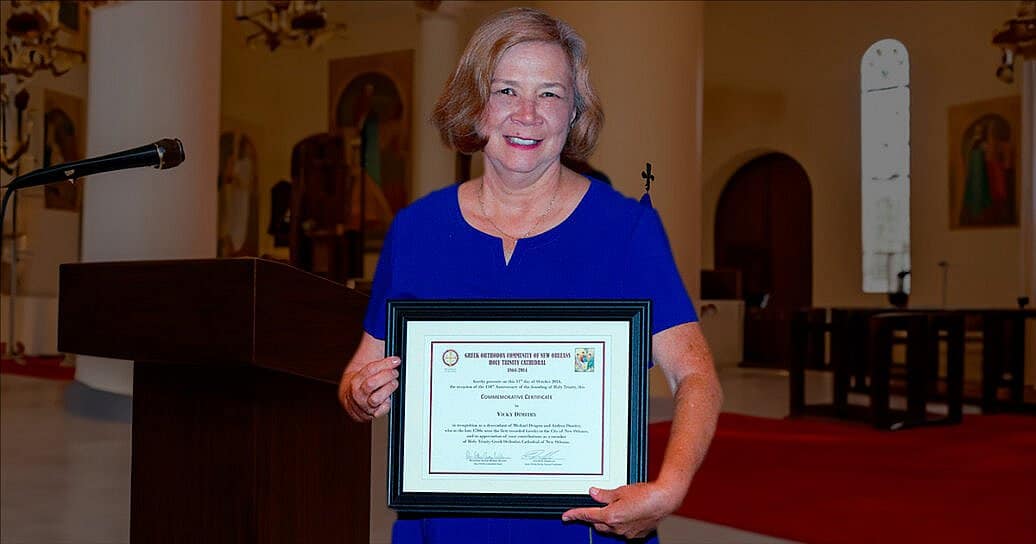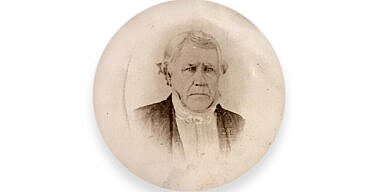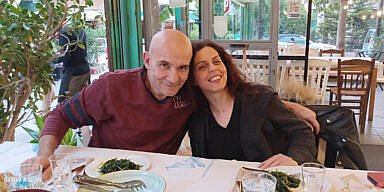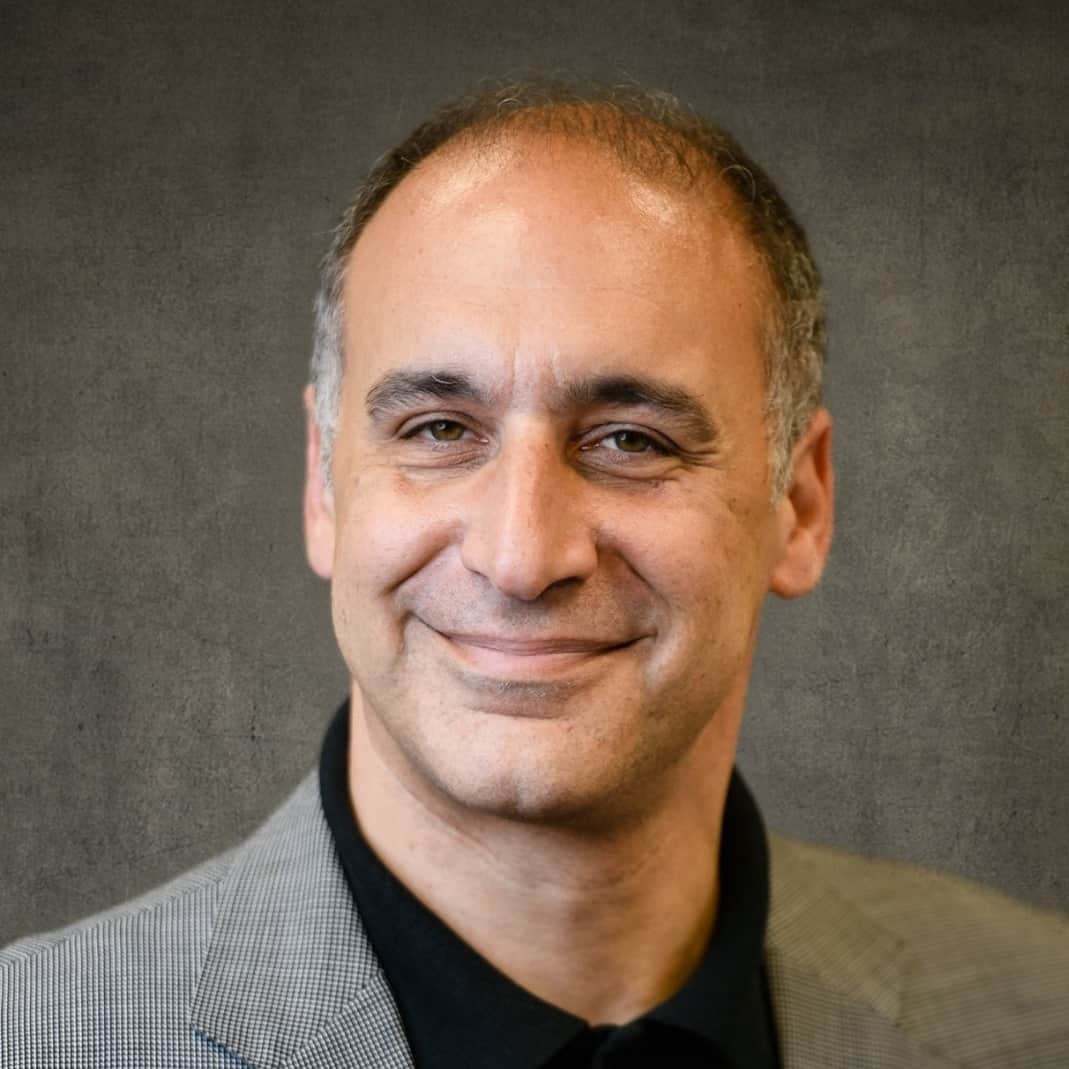It is always a pleasure when, while combing through archives and historical documents, you can trace the living descendants to the subjects you are studying. So it was this spring, in New Orleans, as I researched in the Holy Trinity Archives, which chronicle the first Orthodox Church in the United States, founded in 1864, as well as the Historic New Orleans Collection and a series of other archives.
The Greek New Orleans story is older than the church, and in fact older than the United States, as one of the first Greeks in New Orleans was an Athenian native using the Hispanicized name Miguel Dragon, from 1766. He married a local lady of partial French ancestry, and their daughter married an additional Greek arriving in New Orleans, a man named Andreas Dimitry (whose original surname was Dritsakos or Drissaqui) from my ancestral island, Hydra. It is likely that Andrea Dimitry arrived, via Barcelona, circa 1795-1799.
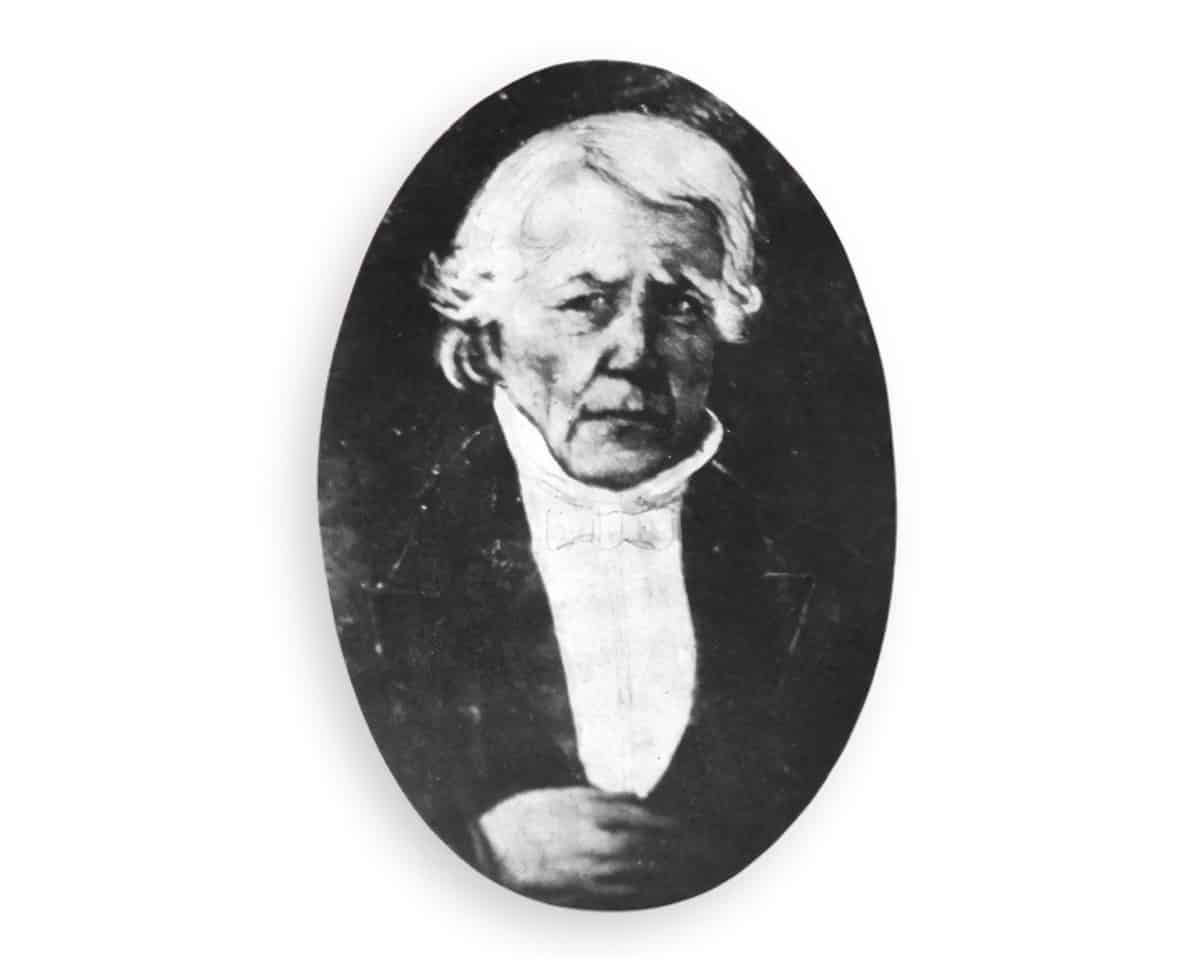
Andrea Dimitry
All of this transpired before the transfer of New Orleans from France to the United States in 1803. Further, the history is corroborated by three original letters from the Historic New Orleans Collection, addressed to Dimitry’s mother, brother, and uncle in Hydra, informing them from 1803 that he is well and that he has married the daughter of a “Romios” (Greek). In gloved hands I held these letters.
I wanted to meet a descendant of this family, which shares a Hydriot heritage with me and might possibly be the oldest identifiable Greek family in the United States. Magdalene Spirros Maag, the director of the Holy Trinity Archives and a tireless researcher on the Greek New Orleans story, put me in touch with Vicky Dimitry, a direct descendant of those early Greeks.
We agreed to meet for coffee in Metairie, a New Orleans suburb outside the historic center. Both of us arrived early, and we both figured out who each other was. For a historian and a Hydriot, this was a singular moment for me. She could tell me so much, but I was pleased that she was also interested in Hydra, whose story I never tire to tell.
Vicky recently retired from a long and rewarding career teaching in New Orleans, “Dimitrys are big educators,” she said, and began talking about several of her educator ancestors, starting with Andrea Dimitry’s son, Alexander, who became Louisiana’s first Superintendent of Education, and also served as a diplomat and in several US, Louisiana, and Confederate government roles. He was also a polyglot, speaking ten languages, and the first of ten generations of Dimitrys to graduate from Georgetown University, which is my alma mater as well.
Both Dragon and the first Dimitry distinguished themselves not only in business but in military service as well. Miguel served in the Spanish Army fighting against the British during the American Revolution, taking part in the capture of Pensacola in 1781. “That entitles me to being a Daughter of the American Revolution,” she says, and his tomb in New Orleans also references his revolutionary service. Dragon’s Hydriot son in law fought in the New Orleans Militia with General Jackson in the Battle of New Orleans, distinguishing himself, while his son, Alexander, then ten, sent to the front with a household enslaved servant to get word of his father’s safety, is said to have been the first civilian to hear of the resounding American victory a few miles outside the city.
The Dimitry family settled into the Catholic gentry of New Orleans, becoming part of the fabric of the city, a place which retains a love of its deep heritage and traditions. When I asked Vicky about the Dimitry family’s relationship with the Greek arrivals who founded the first church, she did not have too many specific details of her then-Catholic family’s relationship with the new Greek arrivals, beyond saying that relations were cordial and that family lore has suggested that the family always was ready to help fellow Greeks, including assistance in funding to build the first church, and they were proud of their Greek heritage, using traditional Greek naming customs for Andrea’s children. For example, Andrea’s first two children had his parents’ names. Alexander Dimitry, for example, spoke at Russian Tsar Alexander III’s memorial service at New Orleans’ Holy Trinity Church, where he offered his appreciation for the Russians’ assistance to the Greeks in their struggle for liberty.
Vicky has never been to Hydra but recalled a story from her father referencing a letter from the island, from the 1860s, about a Hydriot woman waiting for a letter from New Orleans to send for her, as there was a shortage of marriageable Greek women in the community at the time. She was interested in the island, and I tried to sketch for her the background of the Hydra her ancestor left in the 1790s. At the time, Hydra was the wealthiest island in the Greek archipelago and their ships traveled during this era throughout the Mediterranean and Black Seas, as well as across the Atlantic.
I also told her that, aside from being among the first Greek-Americans, with Hydriot ships making transatlantic voyages by the early 1800s, Hydriots were among the first Greek Australians, and a Hydriot was a key naval hero in the Argentine War of Independence in the 1820s. Hydriots have a pioneer heritage around the world, one that she shares.
What I think most moved me about meeting Vicky was her absolute sense of rootedness in the soggy soil of New Orleans. Particularly for Greek Americans, where our American stories seldom reach back more than a century, hers starts in the 1760s, before there was a United States, and her family bore witness to all of the acts in the American drama, and in one of its most historic and important cities. Speaking of roots, Vicky has been chrismated into the Greek Orthodox Church, fulfilling a wish of her father to return to their Greek heritage.
Vicky has the easy elegance and cosmopolitanism of a citoyenne, a citizen long resident somewhere, as much a part of the fascinating city as its buildings and streets. I left her my thesis, with its long chapter about Hydra, and I invited her to Hydra (an invitation backed by the Director of the Hydra Museum and Archives).
She is also a prolific painter. I smiled, saying, “Ah, it’s in the blood, Hydra is an island of painters!”
